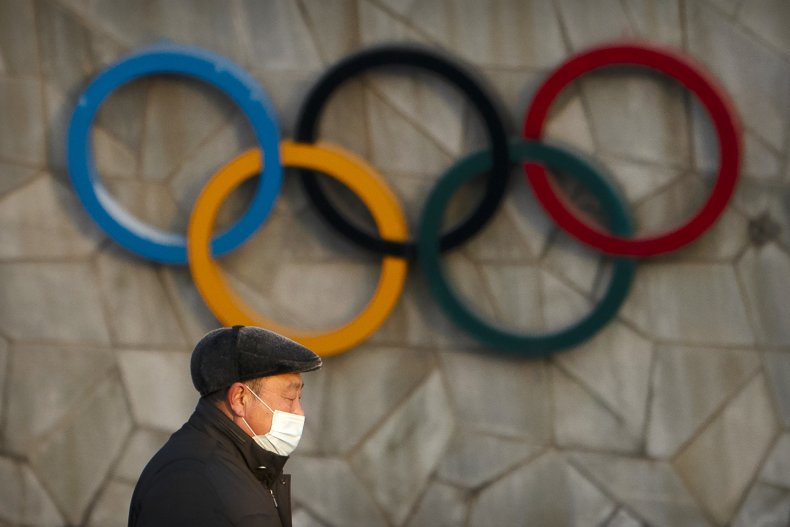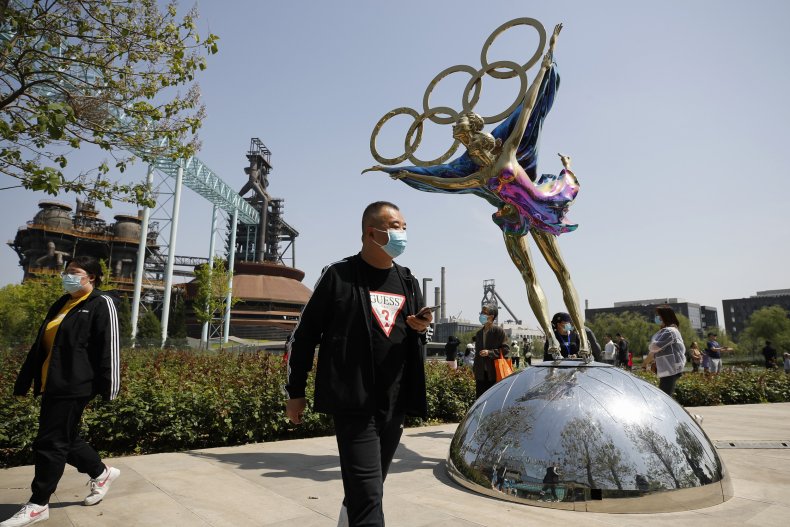11 Weeks Until Winter Olympics, Some U.S. Athletes Still Unsure How They'll Get to China
With 11 weeks left until the Winter Olympics, some U.S. athletes are uncertain how they'll get to China due to a lack of flights between North America and China.
Information has been slowly disseminated from China as the 2022 Winter Olympic Games head toward their February start. Olympians could catch a set of still-undermined connecting flights, doubling their travel time. Most of the 250 athletes that make the U.S. team need to take a charter connecting them to Beijing-bound flights departing from four cities. None are located in North America.
The situation has made the logistical challenge of getting Olympians and their thousands of pounds of equipment to China more convoluted. This is on top of the challenges already in place, including a vaccine mandate, less freedom of movement, and competing in a country ready to restrict negative coverage.
In an interview with The Associated Press, U.S. skier Mikaela Shiffrin said, "We're very used to being flexible with our planning and schedule. But we very rarely don't have a plan at all. So that is definitely another added source of stress."
The COVID pandemic already hampered athletes' schedules by relocating competitions. Also, finding snow in the offseason has been difficult because much of New Zealand is closed.
Delta Airlines, the U.S. Olympic team's sponsor, could arrange charter flights directly to Beijing from the U.S., but it is yet to.
Approved flights into Beijing from Tokyo, Seoul, Hong Kong, and Paris are expected to depart this week.
For more reporting from the Associated Press, see below.

The U.S. ski and snowboard team's tentative plan is to charter flights from Los Angeles to one of the points in Asia, then switch to Olympic charters. Further complicating the issue is that some of these athletes are in Europe for the World Cup season. Without normal commercial options available, the task of moving them around is more difficult.
The U.S. Olympic and Paralympic Committee is ultimately in charge of getting the ski team and the rest of the U.S. teams, outside of hockey, to Beijing. With an extra connection through Asia, or a stop in Europe, travel times could be around double what would normally be a 12-hour journey from the U.S. West Coast to Beijing.
Rick Adams, the USOPC's chief of sport performance, said everyone was aware that the quick turnaround after the Tokyo Olympics and the COVID-19 protocols "would make planning for Beijing very complex."
"That said, we pride ourselves on being the best prepared NOC and NPC in the world, and we are exploring all options to get our Olympic and Paralympic athletes — as well as support staff — to the Games safely and efficiently," he said.
Athletes aren't the only group being impacted by China's rule-making in advance of the Olympics.
The Foreign Correspondents Club of China put out a statement this month complaining of "lack of transparency" from the Beijing Organizing Committee and the IOC with regards to Olympic-related reporting in China.
The organizing committee told China's Xinhua news agency that it plans on increasing credentials for test events and is assigning staff to manage interview requests and inquiries. The committee said it does not recognize the FCCC.
Most journalists and Olympic support staff also have been on hold in making their travel plans.
Much of the travel confusion stems from U.S. and Chinese carriers' decisions to reduce the number of flights between the countries from more than 300 a week to single digits. The rollbacks started when demand dropped off sharply in the wake of early COVID-19 outbreaks. The reinstatement of the flights was slowed because of diplomatic wrangling between the countries, along with strict quarantine rules that makes travel to either place difficult. Just this week did the U.S. reopen travel to some foreign visitors who can show proof of vaccination.
The U.S. athletes are now collateral damage in this, as the USOPC negotiates with Delta for charter flights that are expected to cost well into six figures.
Though the extremely limited number of flights between America and China is unique, the U.S. isn't the only one dealing with an unprecedented amount of uncertainty this close to the Games. A recent search of the Air Canada website offered at least one option for flights between Vancouver and Beijing (with a stop in Shanghai), where similar searches of Delta and United websites offered none between the U.S. and Beijing.
"Planning for these Games has been challenging due to COVID-19, but we experienced similar issues during our planning for Tokyo," Canadian Olympic Committee CEO David Shoemaker said. "We have no reason to believe that we will have any trouble getting Team Canada to the Games on time and ready to compete."


